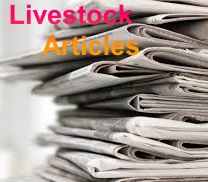Agri Department Ready To Grow Despite Budgetary Constraints – Steenhuisen
Agri department ready to grow despite budgetary constraints – Steenhuisen
By Glenneis Kriel | 17 July 2024 | 12:36 pm
The new agriculture minister, John Steenhuisen, intends to accelerate the implementation of the Agricultural and Agro-Processing Master Plan, get more smallholder farmers to access foreign markets, modernise legislation and strengthen biosecurity.
Steenhuisen said during his recent budget speech that he had no intention of reinventing the wheel but rather wanted his department to focus on accelerating the implementation of the objectives of the Agricultural and Agro-Processing Master Plan (AAMP).
READ Corporates and wine sector lose, while sugar wins in Budget 2024
“My immediate task is to build on the solid foundation former Minister Thoko Didiza established and take the process to its natural conclusion. For this, we need a collaborative approach, leveraging the skills, resources, and knowledge already available in the private sector, industry and agribusiness to work hand in hand with government,” Steenhuisen said.
He made it clear that he believed in the importance of the “co-existence of small and large farmers and agribusiness” but wanted to see more small-scale farmers access foreign markets: “For me, that will be the definition of inclusive growth.”
Steenhuisen also committed to work closely with the portfolio committee to drive a legislative agenda that will modernise the agricultural sector, as some of the legislation governing the sector was outdated and out of step with the needs of the modern agriculture sector.
“It is time to bring the policy and regulatory environment into the modern era to harness new technologies, products and practices that are available internationally. This will allow our farmers to remain on the cutting edge of agricultural advancements and ensure global competitiveness.”
He said Onderstepoort Biological Products and the Agricultural Research Council were key players in the development and production of vaccines and medicines to treat outbreaks, but far greater effort was required to focus on disease prevention and containment strategies and protocols that are rapidly implementable and deployable on the ground level.
He said the department would be focusing on a new track and trace system for the movement of animals around the country to enhance traceability, which is becoming increasingly important in international markets but will also help to combat stock theft and improve disease prevention.
Read: Major stock theft crackdown brings relief to Eastern Cape farmers
Steenhuisen emphasised the importance of blended finance to help unlock the full potential of emerging farmers and wanted a “fully-fledged database of farmers” to better understand the type of support each of farmers required.
To conclude, he said various other departments that fell outside of agriculture had a direct impact on the sector. These included transport, police services and water.
However, he intended to knock on all the doors and work together in a transversal way to unlock the potential of the agriculture sector as an “engine room” of job creation, economic growth and development of the rural economy.
“I intend to make sure that our farmers, farmworkers and the sector have the loudest voice in the room.”
Achieving these goals might however be difficult due to budgetary constraints. The portfolio committee on agriculture and portfolio committee on land reform and rural development report on the 2024/2025 annual performance plans and budget of the Department of Agriculture, Land Reform and Rural Development and its entities noted that the department had declined from R16,7 billion in 2023/2024 to R16,7 billion for the 2024/2025 financial year.
READ Tips for running a farm’s finances in tough times
According to the report, the department’s total budget over the medium-term expenditure framework period ending 2026/2027 will see an average growth rate of 2,6%, and a reduction amounting to R4,3 billion due to decreases in allocations across most of the programmes.
Programme 2, which constitutes agricultural production, biosecurity and natural resources management, received about R2,3 billion, which is almost the same as the previous financial year’s allocation.
While its budget growth had been stagnant previously, the budget over the medium-term expenditure framework will increase by 2,6%, largely driven by allocations to the Animal Production and Health sub-programme and to some extent the Natural Resources and Disaster Management sub-programme.
About 48% of this programme budget for 2024/2025 is the Parliamentary Grant transfer to the Agricultural Research Council, while the rest is allocated to five sub-programmes.
Only R5 million, or 0,2%, of the budget is allocated to the biosecurity sub-programme, which the committee found concerning, considering disease outbreaks, such as foot-and-mouth, avian influenza, African horse sickness, rabies and so forth. The LandCare grant will receive R90 million in the current financial year.
In terms of programme 5, which constitutes economic development, trade and marketing, the budget allocation has decreased from R806 million to R792 million.
The Agro-processing, Marketing and Rural Industrial Development sub-programme accounts for 63% of the budget, with its allocation declining from R513 million to R500 million.
About 82% of this is for current payments in the form of compensation of employees (R284 million) and goods and services (R364 million), whereas the rest is for foreign government and international organisations (R47 million), the National Agricultural Marketing Council (R45,8 million), the Land Bank (R44,6 million) and payments for capital assets (R6 million).
The committee advised the minister to liaise with the finance minister to discuss the declining budgetary allocation to the vote, despite the department’s important mandate in terms of job creation and its important contribution to food security, biosecurity, natural resource and disaster management.








